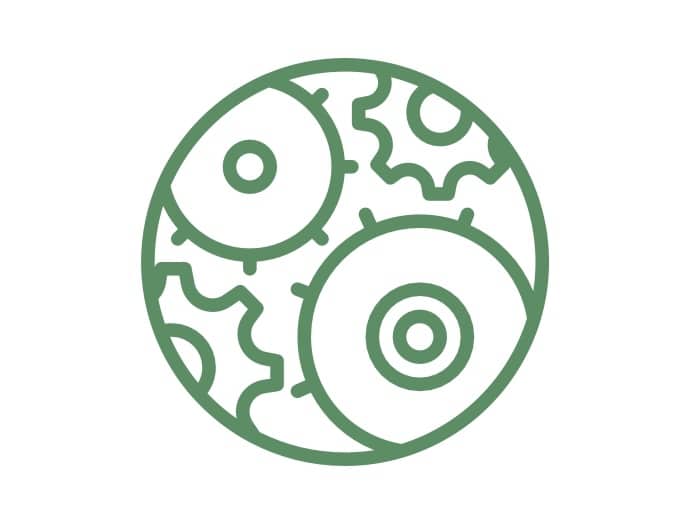SHIP collaboration initiatives
SHIP is launching start-up collaboration initiatives to enhance understanding and support for interdisciplinary and transdisciplinary work, paving the way for future collaborations on complex global challenges impacting health.
If you are interested in participating in upcoming seminars, workshops, and courses stemming from SHIP collaboration initiatives, keep an eye on the News and events page as they become available.

Tools for action
The Tools for Action have been designed to equip academics, policymakers, and changemakers with practical guidance to accelerate sustainable health. These resources offer actionable strategies and evidence-based insights to bridge the gap between research and real-world impact. The Tools were developed in collaboration between Karolinska Institutet and Makerere University, Uganda, for the Centre for Sustainable Health (CESH). The tools are dynamic and are continuously improved to provide better value for the users.
CESH welcomes SHIP members to workshops such as:
- Research to Action – Turning knowledge into impact
- Multisectoral Collaboration – Building partnerships for sustainable health

Reciprocal Capacity Building
Reciprocal Capacity Building is an innovative PhD course designed to enhance expertise in scientific review and academic publishing. Covering key topics such as peer review standards and ethics, publishing methodologies, and capacity-building strategies, this course equips students across disciplines and regions with essential skills for impactful research and achieving scientific excellence.
Organized by the Department of Epidemiology and Global Health at Umeå University and sponsored by Taylor & Francis, this program fosters global collaboration and academic excellence.

One Health: Concept, Cases, and Methodology
The PhD course One Health: Concept, Cases, and Methodology (3ECTS) provides a comprehensive theoretical foundation in the One Health approach—demonstrating why interdisciplinary collaboration is essential to tackling today’s health challenges.
Participants will explore the benefits and limitations of interdisciplinary research and learn how different fields come together to drive impactful solutions. The course combines theoretical lectures with real-world case studies, showcasing successful One Health applications. Additionally, students will gain hands-on exposure to key methodologies, including:
- Epidemiology and disease modeling
- Bioinformatics for data-driven insights
- Qualitative research methods for comprehensive analysis
This course is organized by SLU Future One Health. SHIP supports the sourcing of teachers through the platform.

Co-Creation Lab
The Co-Creation Lab at the Centre for Health and Sustainability, Uppsala University, is a dynamic space for collaboration, innovation, and the development of solutions to complex global challenges impacting health. Through interactive workshops and cross-disciplinary engagement, the lab fosters new ways of thinking and working across academia, policy, and practice.
Co-Creation Lab will invite SHIP members to take part in an online workshop under the theme Knowledge building through transdisciplinary methods. The workshop will aim at strengthening collaboration, enhancing methodological approaches, and driving impactful change for sustainable health.

Prince Mahidol Award Conference
The annual Prince Mahidol Award Conference (PMAC), in Thailand, brings together leading public health professionals and stakeholders from around the world to address high-priority global health challenges. The conference serves as an international platform for both public and private global health institutions to collaborate, advocate, and seek expert advice on critical health issues. Each year’s specific objectives are developed in consultation with key stakeholders and conference co-hosts.
The School of Public Health and Community Medicine at the University of Gothenburg plays an active role in shaping the conference’s content and sessions through its representation on the International Organizing Committee, supported by the Department of Epidemiology and Global Health at Umeå University. This involvement gives opportunities for networking and broader participation by Swedish experts at member universities.
Universities are key collaborators for PMAC, with mutual benefits. Conference participants include ministers, senior government officials, representatives from intergovernmental organizations, international development partners, global health initiatives, researchers, students, advocates, civil society organizations, philanthropes, and high-level stakeholders from low-income to high-income countries.
PMAC 2026
SHIP has provided support in organizing the session “Peace Under Pressure: Navigating Conflict, Environment, and Population Health.”
The keynote address will be delivered by Professor Peter Wallensteen, the Dag Hammarskiöld Professor of Peace and Conflict Research at Uppsala University.
Learn more:
> Session details
> About PMAC 2026
PMAC ACADEMY
SHIP has been invited to participate in the formation of PMAC Academy.
The PMAC Academy Working Group are exploring:
- The development of initiatives for organizational capacity building, especially in health policy and health system development, health equity and leadership in global health.
- The development of a Fellows Program for young, current and future leaders.
- The introduction of the concept of sustainable health.
We share experience and ideas from Sweden and aim at enabling deeper collaboration with PMAC and partners in Asia, fostering synergies and mutual benefits.

